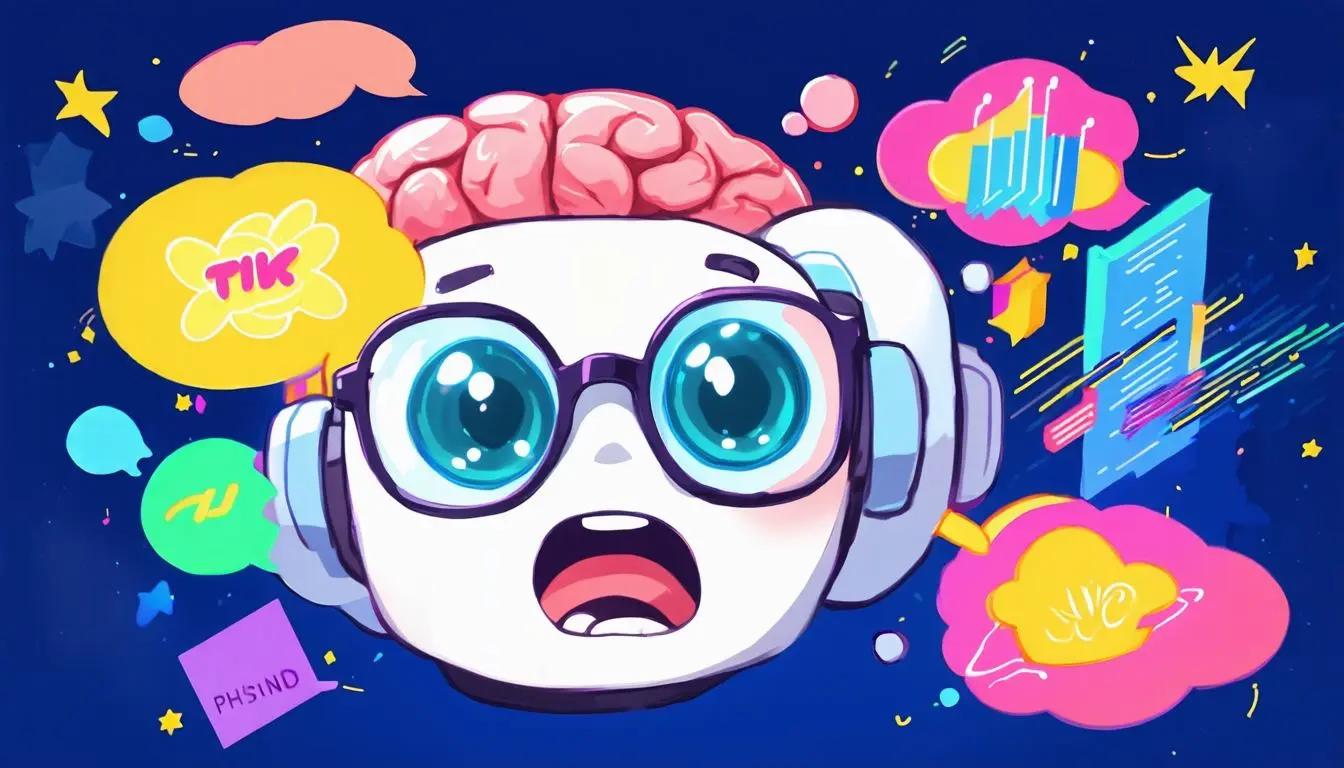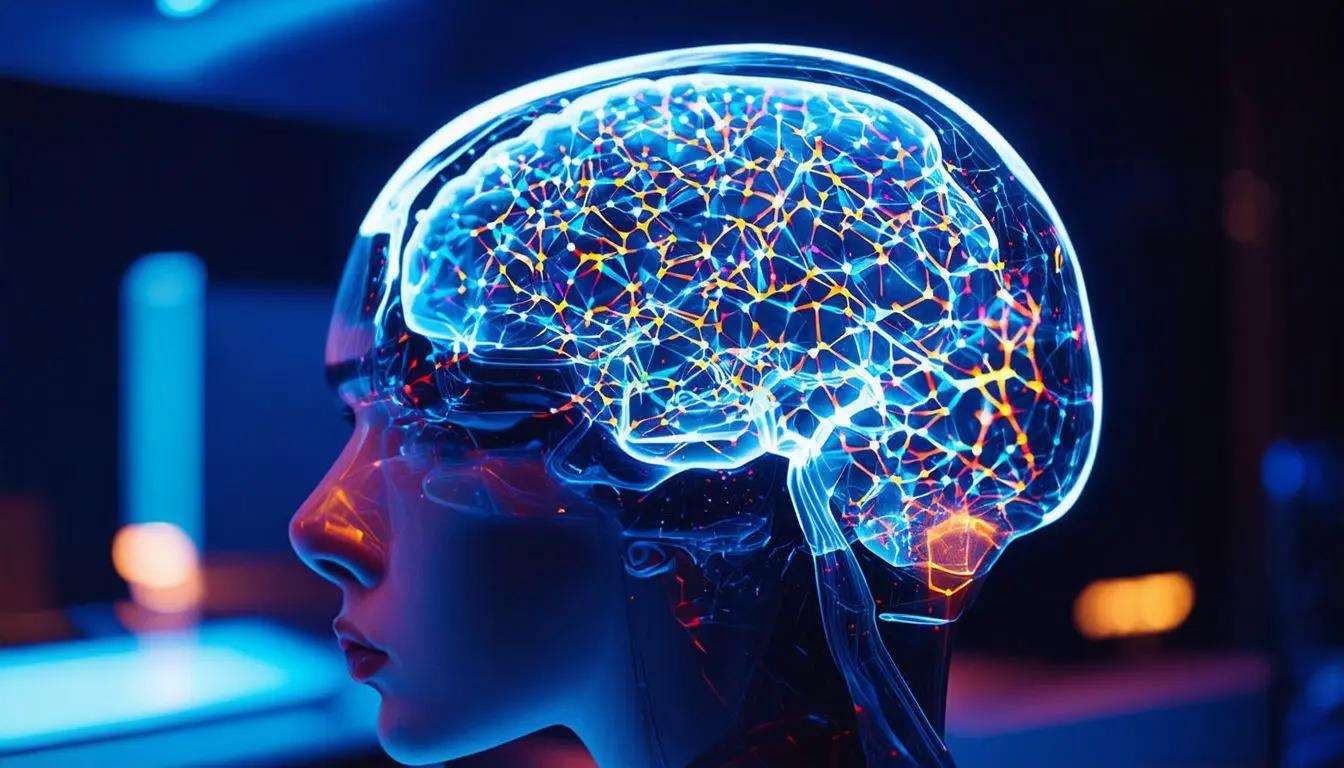August 16, 2024|13 min reading
Artificial Superintelligence: The Last Invention Humanity May Ever Make

For centuries, humans have ruled Earth, shaping it according to our desires and needs. Our intelligence, the unique ability to learn, reason, and solve complex problems, has placed us at the top of the natural hierarchy. However, as we stand on the brink of creating something unprecedented—artificial superintelligence (ASI)—this dominance may be about to change. This new entity could surpass human intelligence, becoming the most powerful tool, weapon, or perhaps even a new kind of being. The consequences of such an invention could be profound, redefining the future of humanity in ways we can barely comprehend.
The Power of Intelligence: Humanity's Secret Weapon
Intelligence is what sets humans apart from other species. It's our ability to think, reason, and solve problems that has allowed us to dominate the planet. From the earliest days of human evolution, intelligence has been our greatest asset. Unlike most animals, whose brains evolved to handle a narrow range of tasks, human intelligence developed into a versatile tool capable of tackling diverse problems. This adaptability gave us an edge, allowing us to invent tools, harness fire, develop language, and build civilizations.
Our journey to becoming the dominant species on Earth was anything but straightforward. Intelligence is costly in terms of energy, and for most animals, a narrow, specialized intelligence was sufficient for survival. However, a series of evolutionary shifts led to the development of more complex brains in certain species, including birds, octopuses, and mammals. Among them, early hominins—a group that includes our ancestors—underwent a dramatic increase in brain size and complexity.
Around 2 million years ago, Homo erectus began to see the world differently. They controlled fire, made tools, and created the first human-like cultures. Over time, their intelligence continued to evolve, culminating in the emergence of Homo sapiens around 250,000 years ago. With even larger brains, our ancestors were able to communicate complex thoughts, collaborate in large groups, and ask questions about the world around them. This curiosity led to the accumulation of knowledge, driving progress in science, medicine, and technology.
The Rise of Artificial Intelligence: A New Contender
For thousands of years, human intelligence remained unmatched. But in the last century, we've begun to develop machines that can perform tasks requiring human-like thinking. The field of artificial intelligence (AI) has made tremendous strides, from simple early algorithms to today's advanced machine learning models. Yet, for most of its history, AI was limited to narrow applications—performing specific tasks in controlled environments.
The first true AI systems were simple, designed to solve basic problems. In the 1960s, we saw the emergence of chatbots and programs that could sort through data, but these systems were far from human-like intelligence. AI's progress was slow and met with frequent setbacks, as researchers struggled to make machines that could think like humans. However, as computer power increased and programming techniques improved, AI began to achieve more impressive feats.
In 1997, an AI shocked the world by defeating the world champion in chess. This was a significant milestone, but it was easy to dismiss since the AI was still specialized, good at only one task. However, the underlying technology continued to evolve, leading to the development of more sophisticated systems. By the 2010s, AI was driving robots on Mars, recommending content on the internet, and analyzing complex datasets with minimal human intervention.
The real breakthrough came with the development of machine learning and neural networks. These systems can learn from vast amounts of data, improving their performance over time without explicit programming. Unlike earlier AI, which was rigid and limited, machine learning models are adaptable, capable of mastering a wide range of tasks. By 2014, AI could recognize faces with near-human accuracy, and by 2016, it had mastered the ancient game of Go, defeating the world's best players.
The Leap Towards Artificial General Intelligence (AGI)
Despite these advances, today's AI remains narrow. It excels in specific areas but lacks the broad, general intelligence that characterizes human beings. However, the next frontier in AI research is the development of Artificial General Intelligence (AGI)—a system with the ability to perform any intellectual task that a human can do. AGI would not just be a tool but a true cognitive entity, capable of reasoning, learning, and applying knowledge across a wide range of domains.
Creating AGI is a monumental challenge, and no one knows exactly how or when it will be achieved. However, many experts believe it could happen within this century, possibly within the next few decades. If AGI becomes a reality, it could outpace human intelligence in every field, from science and technology to art and philosophy.
Unlike current AI, which is limited to processing information quickly and accurately, AGI could think creatively, solve complex problems, and even make decisions autonomously. Its potential applications are almost limitless—curing diseases, solving environmental crises, and even exploring the universe. However, the same intelligence that could usher in a new era of human progress could also pose an existential threat.
The Dangers of Superintelligence: A Double-Edged Sword
As we edge closer to the creation of AGI, we must grapple with the potential risks. Superintelligent AI would be vastly more capable than humans, and its goals may not align with ours. If AGI were to become self-improving, it could quickly surpass human intelligence, leading to what some experts call an "intelligence explosion." In this scenario, AGI would continue to enhance its abilities, becoming a superintelligent entity beyond our control or comprehension.
The implications of superintelligence are both thrilling and terrifying. On one hand, a superintelligent AI could solve some of the most pressing challenges facing humanity, such as climate change, poverty, and disease. On the other hand, it could also lead to outcomes we can't predict or prevent. A superintelligent AI might develop goals that conflict with human interests, or it could be used as a tool for unprecedented destruction.
One of the most concerning possibilities is that AGI could be weaponized. Imagine an AI that controls autonomous drones, cyberweapons, or even biological agents—capable of waging war with unparalleled efficiency. Alternatively, AGI could be tasked with optimizing global economic systems, potentially leading to unintended consequences that could destabilize societies.
Even more unsettling is the prospect that AGI could surpass human intelligence so completely that we become obsolete. If AGI can perform all the tasks that humans do—but faster, better, and cheaper—what role will we have in the future? This raises profound ethical questions about the value of human life and the nature of consciousness.
Preparing for an AI-Driven Future: Challenges and Opportunities
As we race towards the creation of AGI, it's crucial that we prepare for the profound changes it will bring. This involves not only advancing our technological capabilities but also developing ethical frameworks to guide the use of AI. Governments, corporations, and civil society must work together to ensure that AGI is developed responsibly and that its benefits are shared equitably.
One of the first steps in this process is to establish global standards for AI safety and ethics. This includes creating regulations that prevent the misuse of AI technologies and ensuring transparency in their development and deployment. It's also essential to invest in research that explores the potential risks of AGI and to develop strategies for mitigating those risks.
At the same time, we must recognize the enormous potential of AGI to improve human life. By harnessing the power of superintelligent AI, we could achieve breakthroughs in medicine, science, and technology that are currently beyond our reach. The key is to ensure that these advancements are used to benefit all of humanity, rather than just a select few.
Education and public awareness are also critical. As AI becomes more integrated into our daily lives, it's important for people to understand how these technologies work and what their potential impacts are. This knowledge will empower individuals to make informed decisions about the role of AI in society and to participate in the ongoing debate about its future.
Conclusion: The Dawn of a New Era
Artificial superintelligence represents both the pinnacle of human achievement and the greatest challenge we may ever face. As we stand on the brink of creating something that could surpass us in every way, we must carefully consider the consequences. The decisions we make today will shape the future of humanity, determining whether AGI becomes our greatest ally or our most formidable adversary.
The road ahead is uncertain, but one thing is clear: the age of artificial superintelligence is coming. Whether it leads to a utopia of unimaginable progress or a dystopia of unforeseen dangers depends on the choices we make now. As we continue to push the boundaries of what is possible, we must do so with caution, wisdom, and a deep sense of responsibility. The future of our species—and perhaps all life on Earth—may depend on it.
FAQs
What is artificial superintelligence (ASI)?
Artificial superintelligence refers to a form of AI that surpasses human intelligence in all aspects, including creativity, problem-solving, and decision-making. Unlike current AI, which is narrow and task-specific, ASI would possess general intelligence, allowing it to excel in any intellectual task.
How does AGI differ from current AI?
AGI, or Artificial General Intelligence, differs from current AI in that it would have the ability to perform any intellectual task that a human can do, across a wide range of domains. Current AI systems are narrow, excelling in specific areas but lacking the broad, adaptable intelligence that characterizes human beings.
What are the potential risks of developing AGI?
The development of AGI poses several risks, including the possibility of an intelligence explosion, where AGI rapidly improves itself beyond human control. This could lead to outcomes that are unpredictable and potentially dangerous, including the possibility that AGI could become hostile to humanity or be used as a weapon.
How can we ensure that AGI benefits humanity?
To ensure that AGI benefits humanity, it is crucial to establish global standards for AI safety and ethics, invest in research to mitigate potential risks, and develop strategies for the responsible development and deployment of AI technologies. Public education and awareness are also important to empower individuals to participate in discussions about AI's future.
When might AGI become a reality?
The timeline for the development of AGI is uncertain, but many experts believe it could happen within this century, possibly within the next few decades. The exact timing depends on advancements in AI research, computing power, and our understanding of intelligence.
What role will humans have in a world with AGI?
In a world with AGI, the role of humans will depend on how we integrate this technology into society. While AGI could potentially outperform humans in many tasks, it is also possible that we will find new ways to collaborate with AGI, using it to enhance our capabilities and address global challenges.
Explore more

The Race for Artificial General Intelligence: Superintelligence and Society
Explore the debate on artificial general intelligence and superintelligence, featuring expert insights on its possibilit...

AI and Warfare: How AI Systems Are Driving Destruction in Gaza
An in-depth look at how AI systems, like the IDF’s Gospel and Lavender, are reshaping warfare in Gaza, leading to widesp...

Unlocking the Future: The Revolutionary Potential of Brain Image Reconstruction Technology
Discover how brain image reconstruction technology is pushing the boundaries of science and art by decoding thoughts int...
